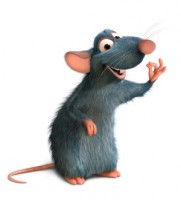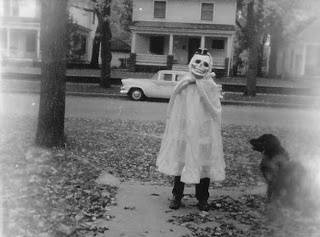Last Call in the City of Bridges by Salvatore Pane
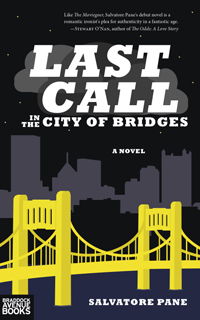 Last Call in the City of Bridges
Last Call in the City of Bridges
by Salvatore Pane
Braddock Avenue Books, November 2012
224 pages / $16 Buy from Braddock Avenue Books or Amazon
Remember the slog of the 2004 presidential campaign – the long months of desperate hope that we’d send Bush back to Texas and finally turn the corner? At the same time, of course, that hope was tempered by the reality of John Kerry – his awkwardness, his lack of passion, his John Kerryness. But still, it felt great to believe, even just a little: to believe that the election was about something bigger, something more important than just changing the White House china. For those of us who grew up in the 80s and 90s, it seemed like our generations (I hate the hair-splitting of Generation X, Generation Y, Millennials, Internet Generation, etc.) were dropped into a cultural void, searching for meaning in a century filled with greatness. Salvatore Pane’s debut novel, Last Call in the City of Bridges, is steeped in this feeling, in this desperate quest for generational identity. The book asks the same questions we’ve been asking ourselves for a decade or more: why is my generation here? What is here for us? How can we matter – and if we can’t, how can we at least get through this world alive?
The novel is bookended by the 2004 and 2008 elections. The false excitement and squashed hopes of Kerry. The thrill of watching our country leap forward, if only briefly, to elect Obama. More than any book I’ve read in years, this novel is grounded in a firm sense of its own place in history. In it, Pane writes of the importance of small events among uncertain times, of the longing for a larger myth – for something more to believe in:
November 30th, 2012 / 12:00 pm
Gods, Men and Howard Cosell
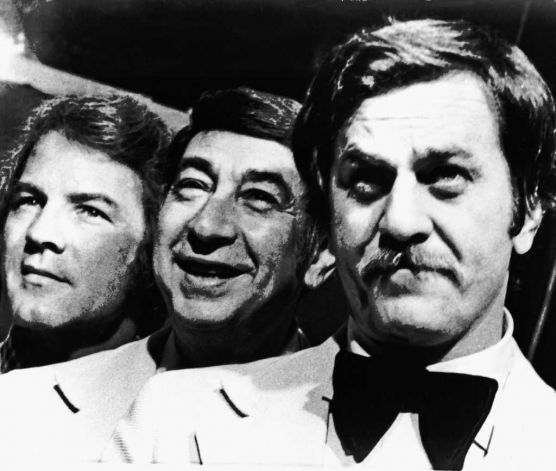 In the summer of 1962, Howard Cosell found himself lying on his back at the side of the road, the joe-pye weed squaring off in the sun above him as he woke from his stupor. “That’s when I knew I had to make changes,” Cosell says, “those weeds bending over me like God’s many heads. It was my high, purple clarion call.”
In the summer of 1962, Howard Cosell found himself lying on his back at the side of the road, the joe-pye weed squaring off in the sun above him as he woke from his stupor. “That’s when I knew I had to make changes,” Cosell says, “those weeds bending over me like God’s many heads. It was my high, purple clarion call.”
Cosell rushed home then—a place he spent precious little time in—kissed his four children on the head as they sat on the floor watching TV, and went straight up to the bathroom. Taped to the underside of the sink was his stash, 6 brown cubes of the sweetest chat Eritrea had to offer. READ MORE >
New York’s 100 Most Important Rats Living In the Subway System

fluffy

darlene
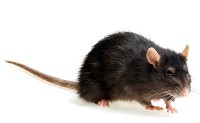
beyonce

macduff
copyrat infringement

spike
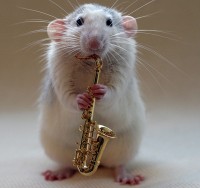
fenton
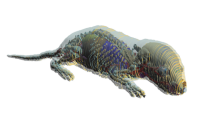
skeletor

francois

meatball
“AND NOW SHE’S ON TWITTER”
Pretty sure @joycecaroloates is the literary personage who most entertains me on twitter (closely followed by @breteastonellis).
And in itself and
 “She comes to a rest in shadow. Above her is an overhang of chickenwire and tins. She freezes. Above her is a terrible shape, a jagged many-limbed thing, a tree tangled from the composites of aerials and tv innards, plastic extrusions like growths in its multipart trunk, thorns of glass and shattered plates. Its branches splay – finger after finger of tubing, and intricate wicked ribbing. Dangling from them like dirty dank foliage, like the skins of victims, are dish clothes, and umbrellas’ countless ripped canopies. Nylon in dinged colours.”
“She comes to a rest in shadow. Above her is an overhang of chickenwire and tins. She freezes. Above her is a terrible shape, a jagged many-limbed thing, a tree tangled from the composites of aerials and tv innards, plastic extrusions like growths in its multipart trunk, thorns of glass and shattered plates. Its branches splay – finger after finger of tubing, and intricate wicked ribbing. Dangling from them like dirty dank foliage, like the skins of victims, are dish clothes, and umbrellas’ countless ripped canopies. Nylon in dinged colours.”
— from “The Flies That Bind” by “Jacques Francis,” The New Inquiry
“I used to compare everything in poems to metallic sheets of mica, the transparent fragments that flake off so easily. I never say I’m a poet; I just say “writer” and no one ever asks “a writer of what?” Once a man told me he was in the business of prosthetic limbs and I was speechless.”
— Stephanie Balzer, The Destroyer Vol 1.2
“We had a president living here once,
After he was president.
A famous animator lived here too.
We’d see him feeding the ducks.
This used to be a big duck town.
Ducks had a real voice.
Then one night they left for New Haven.”
— from “A Little Background” by James Haug, Connotation Press
November 29th, 2012 / 2:32 pm
25 Points: So Say the Waiters
 So Say The Waiters/book1/episodes 1-5
So Say The Waiters/book1/episodes 1-5
by Justin Sirois
Severed Books, 2012
293 pages / $13.99 (print) $6.99 (eBook) buy from sosaythewaiters.com or Amazon
1. This book reminds me also of the 90s Michael Douglas movie The Game in which a rich guy’s brother signs him up for a role play service which makes his life more interesting via nearly killing him such as in multiple car chase scenes as well as I think he rolls down a mountain wearing a suit at one point.
2. Justin Sirois has written a book about nicely done realistic people who are bartenders and in bands but this book is not annoying about that at all because it’s elegantly self-aware and spot on like every two seconds you let out an out loud Ha because yes everyone is exactly like how he depicts them but kinda lovingly actually I feel like he should write some epic movie about indie culture.
3. So the people in this book are called Waiters in a way because they are I think waiting for their lives to get going already but it’s not cheesy it’s good.
4. What it is is that they sign up for a service that kidnaps them and it’s got that “now you will appreciate your life more” thing going on but also it’s kinda Fight Club-ish but more cyberpunk.
5. “Cyberpunk is a postmodern science fiction genre noted for its focus on “high tech and low life.” The name was originally coined by Bruce Bethke as the title of his short story “Cyberpunk,” published in 1983. It features advanced science, such as information technology and cybernetics, coupled with a degree of breakdown or radical change in the social order.” “”Classic cyberpunk characters were marginalized, alienated loners who lived on the edge of society in generally dystopic futures where daily life was impacted by rapid technological change, an ubiquitous datasphere of computerized information, and invasive modification of the human body.” – Lawrence Person” -this is according to Wikipedia.
6. I cannot believe these Wikipedia bastards forgot to talk about William Gibson here. Did you ever read any William Gibson in middle school and then go home and wait five and a half hours for a Nine Inch Nails song to download through your parents dial-up modem in the basement at all?
7. That girl from the Dragon Tattoo books movies looks like she could be cyberpunk. What do you think she smells like?
8. Also Henry the main guy in Sirois’ book has just been dumped by his fiancee and every time he thinks about her it’s so effing sad and done well.
9. “At the cabinet, he reached for an upside-down glass in the highest shelf to find a hair tie somehow trapped like a bug inside it. The hair tie fell onto the counter…He stared at the hair tie…Screw your hair ties, Meghan. All of them…At least it was Friday.”
10. Guy needs a change in his life, enter friend who founded the escapism game, which btw is an app specifically for an iPhone is how you sign up for it. READ MORE >
November 29th, 2012 / 11:59 am
It is Thursday: Go Right Ahead
Holding up banks, for example. Or directing movies. Or being a gigolo. Or being a child again and playing on a more or less apocalyptic soccer team
Though they do their best to get drunk, they can’t.
I was also thinking, indulgently, that we were pretty drunk already and that it was time to go home.
No, I am not still at the bar.
Crystallized spiderwebs or the briefest crystallized vomitings.
Drunk as a bony shoulder.
Eat 15 different cheeses and drink a bottle of Rioja.
They held their drink like Chileans.
Well, there was a little ol’ drunk, laughing.
Yes, plots are a strange matter.
Drink up, boys, drink up and don’t worry, if we finish this bottle we’ll go down and buy another one. Of course, it won’t be the same as the one we’ve got now, but it’ll still be better than nothing.
I remember drinking his face down to the last drop.
She ordered a ham roll and a beer.
Drink in long gulps, almost choking.
Sip whiskey with supreme slowness.
This is how you endure any kind of bombardment: drink schnapps, drink cognac, drink brandy, drink grappa, drink whiskey, drink any kind of strong drink, even wine…
Tore up as a soup sandwich.
Although we know, of course, that in the human scale of things, persistence is an illusion and reason is only a fragile railing that keeps us from plunging into the abyss.
And then the fight begins.
25 Points: Confessions from a Dark Wood
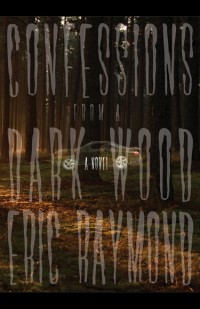 Confessions from a Dark Wood
Confessions from a Dark Wood
by Eric Raymond
Sator Press, 2012
204 pages / $13.00 buy from Sator Press
1. The book begins with a section of “Advance Praise.” Among the quoted, all characters from the story about to unfold, is the deceased father of the author (or co-author, we are told), who gives what is perhaps the first indication that the world you have entered is not only darkly satirical, but propelled forward by something urgent and deeply felt. We may not yet recognize this as the complicated love between father and son, but we catch a glimpse of it and it startles:
“Oh, so you finally have a book. You must be so proud. Congratulations, son. You know, in the afterlife, books are our toilet paper. I’m saying we literally wipe our asses with books. Go figure.”
2. There is little sentimentality here. We meet Nick Bray at his father’s memorial service, which he likens to a church tag sale. He describes what has been left out of the haphazard displays of the artifacts of his father’s life. An empty table, he tells us, “might have stood for all that was omitted from a memorial, i.e. a few decades of filching undergraduate panties, a pyramid of Miller Lite cans, a tape loop of doors slamming around our house, and the amputated legs below the knee, which had shuffled off this mortal coil six years ahead of my father.”
3. At this memorial, a stranger approaches Nick with a potentially lucrative, albeit mysterious job offer, which he dismisses.
4. Back home, after he is fired from his job at an internet porn company where he writes promotional copy, he is forced to assess his situation. He is aimless. He dresses poorly (consider the white Cuban shirt and slip-on shoes he wears to the funeral). He is broke. He reconsiders.
5. One of Nick’s new coworkers is an orangutan. I am not speaking in metaphor. “Shelby” is an advisor to Pontius J. LaBar, CEO, LaBar Partners Limited. He has his own office, of course.
6. Full disclosure: I consider Eric Raymond a friend and fellow traveler although we know each other almost exclusively through twitter. I had coffee with him once at Four Barrel on Valencia. There was a taxidermied moose head that was later stolen. It was nice: the coffee, the moose head. In this book, there is an unflattering portrayal of a Korean adoptee. I am trying not to hold it against him.
7. I am a Korean adoptee.
8. Friend or no, unflattering representations or no, it is difficult not to be drawn into this bizarre world, to be seduced, as Nick himself is, into a surreal landscape of glittering surfaces.
9. After the limousine rides and the custom-made suits; after the commissioned “superfixie,” the apartment overlooking the city, the DuMol Viogner, Nick is well on his way to his new life of airports and minibars in highrise hotels. Expect jargon-laden client meetings and self-annointed brand experts. Expect furious email messages at all hours of the night from the buffoon Pontius. Paranoia. Buffoonery.
10. What do you do when you open the door to the airplane lavatory only to find your dead father waiting for you? If you are Nick Bray, you ask him for advice and then watch as he flushes himself down the toilet. READ MORE >
November 28th, 2012 / 1:01 pm
Cocteau, the shelf, the lunacy
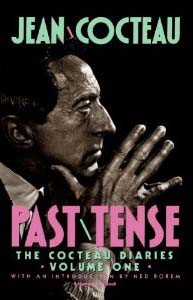 I start out endeavoring to write about those things I know; those authors I know; those films I know; those artists I know, because the chance of publishing something online and the rest of the world instantly knowing more about it than me simply isn’t weighed in my favor, so I want to start with something I know. Obscurity can work in my favor here. Choosing to review, say, Self Portrait by Man Ray will prove far less disputable than another slant on the terrifying depths of the sentences in Infinite Jest; so I may be wise to look to those lesser-discussed works on my bookshelf considering derision isn’t something I enjoy. Furthermore, and aside from obscurity or the arcane, I’m going to want to focus on the personal elements of the topic as opposed to those more general observations ever-present in every other publication on earth. This isn’t a critique of Mad Men for The New Yorker, this isn’t my attempt to reconcile the efforts of Frank Ocean as measured against the palpitations of James Brown, this is something different, and personality shouldn’t hide away at this most pivotal moment in my life as a hack critic postulating endlessly with cheap literary fiction tricks.
I start out endeavoring to write about those things I know; those authors I know; those films I know; those artists I know, because the chance of publishing something online and the rest of the world instantly knowing more about it than me simply isn’t weighed in my favor, so I want to start with something I know. Obscurity can work in my favor here. Choosing to review, say, Self Portrait by Man Ray will prove far less disputable than another slant on the terrifying depths of the sentences in Infinite Jest; so I may be wise to look to those lesser-discussed works on my bookshelf considering derision isn’t something I enjoy. Furthermore, and aside from obscurity or the arcane, I’m going to want to focus on the personal elements of the topic as opposed to those more general observations ever-present in every other publication on earth. This isn’t a critique of Mad Men for The New Yorker, this isn’t my attempt to reconcile the efforts of Frank Ocean as measured against the palpitations of James Brown, this is something different, and personality shouldn’t hide away at this most pivotal moment in my life as a hack critic postulating endlessly with cheap literary fiction tricks.
I choose the selection of books on my shelf by Jean Cocteau, but mostly just the journals Past Tense as they were the most affecting and accessible amid copies of The Imposter or Opium or The Holy Terrors—though these feature drawings by Cocteau I dog-eared and revisit frequently. I’d like to discuss the effects of his films on me or his literature as a whole and I recall in the first volume of Past Tense much of his time is taken up either with theater productions or the making of one of his films (part of the Orphic trilogy, if memory serves though it could’ve been La Villa Santo-Sospir). But really I want to focus on the merits of his journals themselves and the narrative depths achieved in a relatively simple manner but with such savvy that I’ve become convinced a part of my life might be devoted to such journaling, though I hardly measure myself as equivalent with Cocteau.
The experience reminds me of reading the notable journals of May Sarton; brief, artful things describing both the internal considerations of an artist nearing the end of his life and the actual creation of paintings, films, and theater productions—a selling point, I’d think, for anyone even moderately intrigued by Cocteau the man. His descriptions of home life, of say reading Dumas or Proust for the umpteenth time leave you breathless and in turn wanting more, wanting to reread certain things yourself and share the experiences with this elusive and vexing figurehead of art; this French devil who flew so deftly under the surface his entire life as to be acknowledged as a great visionary by known artists but in the public treated simply as a staple and artist, with little consideration given beyond that.
November 28th, 2012 / 12:00 pm


